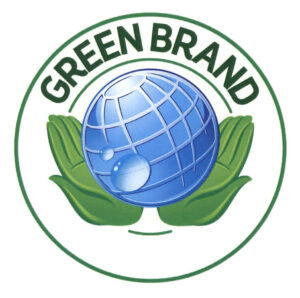Brand using environmental slogan – We are climate-neutralising Berlin
The case: To be protected as a trade mark, an environmental slogan needs a minimum degree of distinctiveness. In addition, it must have the necessary degree of originality or resonance, as well as be catchy enough, to achieve optimal communicability.
On this basis, Berliner Stadtwerke GmbH [Municipal Utilities Berlin Ltd] came up with the environmental slogan
![]()
[We are climate-neutralising Berlin]
The company applied for the environmental slogan as a trade mark for energy services. These included the construction of power and renewable energy generation facilities, energy storage and distribution, power generation services, and consulting and development of energy and power management systems.
The slogan makes a clear statement!
And ‘climate neutralisation’, as a new invented term, should give the slogan the minimum degree of distinctiveness it needs. After all, the slogan was ambiguous, as it could also be understood to mean that the Stadtwerke would ‘create climate awareness for the city of Berlin and its citizens’.
Nevertheless, the EUIPO found that the slogan lacked the requisite distinctiveness.
Why was that?
Trade marks are an essential part of the system of undistorted competition. In such a system, companies must be able to attract customers through the quality of their goods or services. This requires designations by which they can be identified. Trade marks must therefore be distinctive.
The distinctive character required for registration of a trade mark may be lacking if a sign does not enable consumers to distinguish the goods or services identified by it from those of other undertakings. This is because consumers should be able to make a repeat purchase of a product or service if their experience surrounding the first purchase was a positive one, or to buy an alternative product if it was negative. For this, consumers need distinctive signs. A minimum degree of distinctiveness is sufficient for consumers to be able to identify goods or services on the basis of the signs.
But did the slogan fail to achieve even the minimum degree of distinctiveness required by consumers?
In order to assess this, it is necessary to look at the environmental slogan in more detail.
First of all, it contains the verb ‘klimaneutralisieren’ [‘climate-neutralise’]. Such a verb does not appear in German dictionaries. But there is the term ‘climate-neutral’, which everyone knows. Since it is possible in German to create other word forms from existing words according to the rules of the language, the verb ‘klimaneutralisieren’ is also easy to understand and corresponds to German language conventions.
Therefore, the environmental slogan is formed correctly in terms of grammar by use of this comprehensible verb. In the view of the Office, it could have the meaning, in accordance with the language, of ‘we neither positively nor negatively influence the climate of Berlin through our services. This is because we operate in a climate-neutral or climate-neutralised manner, offsetting all unavoidable emissions through a climate protection project’.
Understood in this way, the slogan is merely an advertising tagline praising the services of Stadtwerke Berlin that were covered by the trade mark application. However, consumers cannot distinguish goods or services on the basis of mere advertising slogans.
Even if the environmental slogan had the other meaning claimed by the Stadtwerke, that would be irrelevant. It is sufficient in terms of lack of distinctiveness that just one of a sign’s potential meanings means it is not possible to distinguish goods or services. A mark must enable all consumers to make an appropriate choice.
Irrespective of that, the meaning of the environmental slogan used by the Stadtwerke was not capable of conferring distinctive character on the entity either. Similarly, ‘We create climate awareness for the city of Berlin and its citizens’ would be nothing more than a laudatory, non-distinctive advertising slogan.
Consequently, the environmental slogan was not registered as an EU trade mark.
EUIPO, Fourth Board of Appeal, 3 February 2021, R2335/2020-4.
Learnings: If you’re considering using an environmental slogan, make sure that the phrase also conveys information to consumers, at first glance, about the origin of the products or services relevant to their desire to purchase. If the slogan contains an immediately understandable advertising message, the public will pay little attention to it. They will not spend any additional time searching for the various possible meanings of the word groups or memorising the slogan as a trade mark. It is sufficient, for the meaning to qualify as a mere advertising statement, for there to be only one possible understanding of the environmental slogan.
If in doubt, it is better to apply for a licence to use a certification mark to back up your sustainability claims. The certification mark has been created by the European Union as a means of demonstrating the existence of certain characteristics of products and services. The Green Brand Seal is one such European certification mark for sustainability:

Note: For the meaning of the label, see also the BestCase below:
How to prove sustainability without greenwashing?